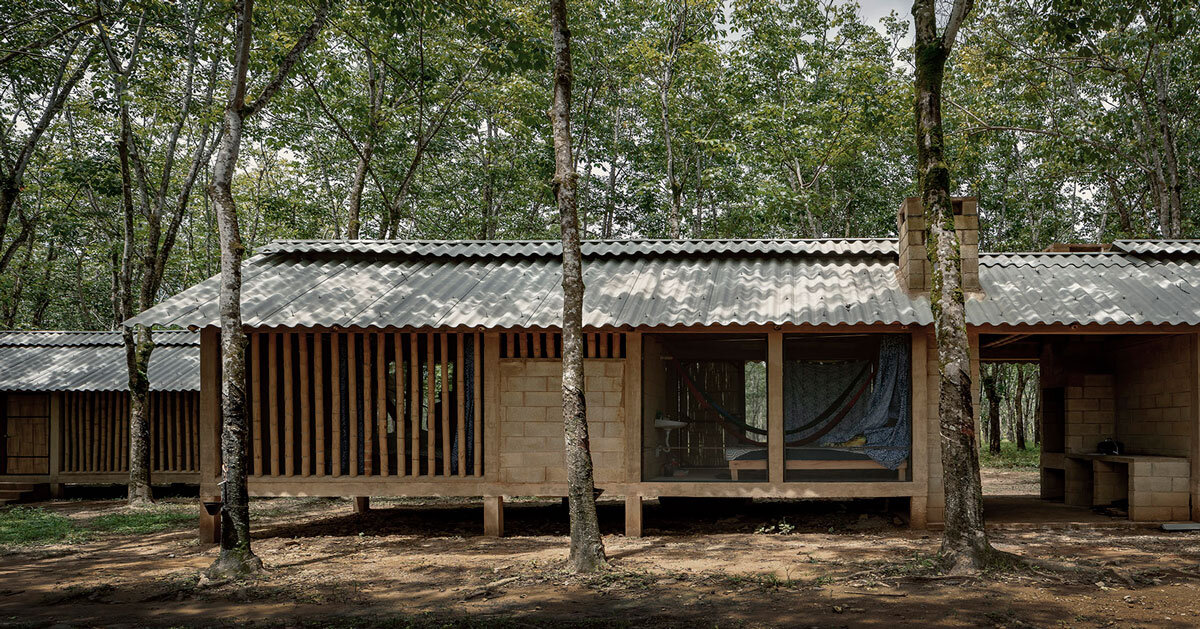
"The design is oriented parallel to the plantation rows to align with the rubber tree grid and maximize the shading effect of the existing vegetation, reducing direct solar exposure on the rooftops."
"These workers often establish makeshift accommodations, resulting in substandard living conditions. The architectural intervention aims to address this issue by providing a system of temporary housing that adapts to the local climate and working conditions."
In Palenque, Chiapas, Manuel Cervantes Estudio has developed a temporary housing project for migrant workers across Latin America. This project addresses poor living conditions often experienced by these individuals. Utilizing local bamboo and reinforced concrete, the modular units are specifically designed to adapt to the humid-subtropical climate, ensuring comfort and sustainability. The layout is strategically aligned with rubber tree plantations, enhancing cooling through shading and enabling effective ventilation. Two sites cater to different demographics: singles and families, promoting community within the plantations while minimizing environmental impact through integrated design.
Read at designboom | architecture & design magazine
Unable to calculate read time
Collection
[
|
...
]